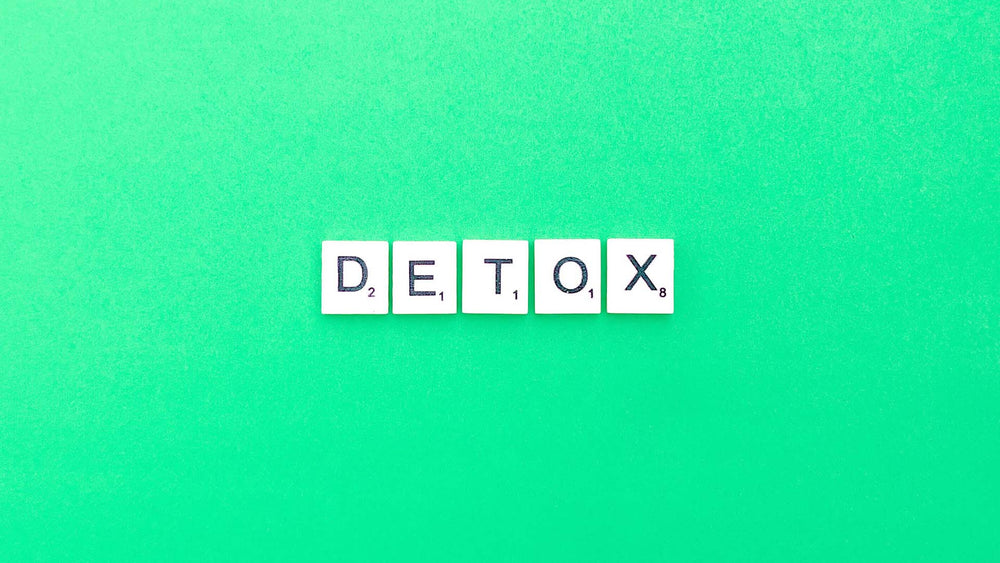Anger is a natural human emotion. It is necessary to occasionally get angry when you are wronged or upset. Constant, knee-jerk anger, however, is just as bad as ongoing depression or anxiety. It can negatively affect others and even hurt your physical health
Constant anger, like depression and anxiety, is caused by being too self-involved and self-absorbed, without looking at the actual circumstances of what is being done and said around you.
Anger has internal and external triggers. When someone cuts in front of us in traffic (or in the supermarket checkout line, that leads to external, or “in the moment” anger. If we remember the time someone ridiculed us in front of others and get angry, that is an internal trigger.
Anger conveys a message, telling you something is unfair or upsetting. When handled constructively, anger is simply an alert mechanism.
If your anger turns into yelling, name calling, and explosive rage, and you never take time to address the cause of that anger, it affects your relationships in a negative manner. You will need to learn how to better express this emotion. It is possible to be angry without hurting or driving away other people.
When you’re quick to anger, people will either avoid you or “walk on eggshells” around you in an effort to avoid upsetting you. Your friends and co-workers will find it hard to be genuine around you and tell you the truth.
Buy Happy Girl Mood Enhancing Supplement to Feel Better Naturally
HAPPY GIRL helps you to feel calmer, more energetic, and promotes an overall feeling of well-being.
Suppressed and Unexpressed Anger
Inhibiting or suppressing your anger may not hurt people around you directly, but it can harm your health. By not dealing with your anger outwardly by admitting that you are angry, it can cause high blood pressure, heart problems, or depression. Not expressing anger can make you cynical or passive-aggressive.
If you, or someone you know, is constantly criticizing others or making cynical comments, they are unable to adequately express their anger. This suppressed anger will impede relationships as much as loud, “over-the-top” anger.
Some people use anger to intimidate people and get what they want. Using anger to bully others will eventually lead to them avoiding you (or quitting a job if you’re their boss). This is why people with bad tempers have a revolving door of Significant Others, friends and co-workers. No one likes or respects a bully.
If you have a bad temper, you’re not “stuck” with it. You can learn how to express dissatisfaction without name-calling or emotional abuse. You don’t need to quash your anger, but you do need to express it in a more constructive way.
How Anger Hurts You – Physically, Mentally and Socially
Anger has physical symptoms, like a disease or injury. You may start breathing faster, clenching your hands or jaw, and feel headaches or pains in your stomach. Your muscles may tense and your hands may get sweaty. Most disturbing of all, your heart may start pounding.
Yelling at or harshly criticizing employees or co-workers will make them avoid you. There is a difference between respect and fear. You’ll get better results from people who like you and know that you will treat them fairly and offer constructive criticism.
Constant anger increases stress and raises your blood pressure. A study by the Centers for Disease Control showed that there is an increased risk of a stroke-causing blood clot to the brain in the two hours after an angry outburst. If a person has an aneurysm, the chance of it rupturing was six times greater after an angry episode.
Another study showed that merely reliving an angry episode caused a decrease in infection-preventing immunoglobulin A.
Uncontrolled anger can end friendships and makes people lie to you or avoid you to escape potential outbursts. It can scar children for life and ruin marriages.
Being angry every day, even at minor annoyances, saps your energy and increases stress. The longer you concentrate on what make you mad, the less time you have to do productive things or enjoy life. Constant anger can lead to depression and paranoia.
Buy Happy Girl Mood Enhancing Supplement to Feel Better Naturally
HAPPY GIRL helps you to feel calmer, more energetic, and promotes an overall feeling of well-being.
What is Behind Your Anger?
If you always want to be in control, and feel that compromising is only for weak people, you need to be more realistic. You need to realize that no one can get through life without an occasional, well-thought out “give and take.”
You may have grown up in a family where an angry parent got his or her way by being loud and angry. As an adult, you may be subconsciously mimicking that behavior. Exposure to long-term anger from a Significant Other, friend, or acquaintance may make you imitate that behavior, for fear you will be a victim again if you remain passive.
People who are quick to anger may be intensely proud or self-righteous and believe that someone who disagrees with their opinion is challenging them. If someone disagrees with you, they aren’t usurping your authority or knowledge; they are just stating a different viewpoint.
Physical Causes of Anger
Anger can cause physical problems, but the opposite is also true. Pre- existing medical conditions can make you quick to anger. It’s common knowledge that dementia and Alzheimer’s disease can cause angry behavior in older adults, but here are a few, lesser-known physical causes of anger.
Statins are widely prescribed to treat high cholesterol, but a joint study by the University of California San Diego and Columbia Presbyterian Hospital in New York showed that regular use of the drug causes irritability, depression, and “violent ideation” in some patients.
Benzodiazepines, a prescription medication used to treat insomnia, OCD, and panic disorder, may cause irritability and aggressive behavior, especially in people who are naturally quick to anger.
Diabetes and the imbalance in blood sugar levels it causes can cause a disparity in calm-inducing serotonin and other brain chemicals, causing you to become easily confused or more aggressive.
Hyperthyroidism, or an overactive thyroid, occurs when the thyroid gland produces too much thyroid hormone. This condition affects mostly women, and spikes up your metabolism. An increase in metabolism causes you to become more impatient, anxious and have difficulty focusing, which may lead to angry outbursts.
Buy Happy Girl Mood Enhancing Supplement to Feel Better Naturally
HAPPY GIRL helps you to feel calmer, more energetic, and promotes an overall feeling of well-being.
What to Do When You’re Angry
Take a deep, slow breath in through your nose and exhale through your mouth. You can control your breathing voluntarily, but you can’t control other automatic functions of the body, like cardiovascular function, of your own accord.
When you change your breathing pattern, rate, and depth, you send different messages to the brain. The brain then responds to this change by replacing anger with a calm or neutral feeling.
Roll your shoulders, or massage your neck and shoulders to release muscle tension from anger. Take a walk or do a few jumping jacks to let off stream. Exercise helps produce endorphins, feel-good chemicals to calm you down.
“Don’t Take Anything Personally” is the Second Agreement in Don Miguel Ruiz’s book The Four Agreements , and following it will change your life.
You can’t control how other people think, talk and feel; you can only control your actions, thoughts and feelings. If someone misinterprets how you act or talk, that’s their problem, not yours.
There’s nothing that you can do or say that will change a person’s actions or personality. People will change their opinions if they want to, not because of another person. If you let another’s person’s words or actions bother you, you will waste your time, energy and possibly harm your health.
Avoiding Situation that Make You Angry
If you always end up getting angry at one of your friends, determine what causes it. Maybe you always get into arguments over politics. Steer the conversation to less explosive subjects to avoid fights. There may be too much construction in a certain area of town that adds miles to your commute. Look for another route to save time and aggravation.
Thinking Patterns That Cause Anger
Overgeneralizing means you look at life in black and white – there is no middle ground. Everyone is out to get you, or you are never invited to events. The reality is usually somewhere between the two extremes.
Believing you can read someone’s mind and know their motives for what they say and do. Refusing to ask the other person’s side of the story, and just assuming what they think and feel is a form of self-absorption that causes unnecessary anger.
Assigning blame when something goes wrong. You blame other people, the weather, the internet, everything but your own choices when something doesn’t’ go according to plan.
If you have an implacable “my way or the highway” attitude and get angry when events don’t measure up to your preset view, you’ll always be angry. Learn to adapt to reality, even if things don’t always go your way.
Buy Happy Girl Mood Enhancing Supplement to Feel Better Naturally
HAPPY GIRL helps you to feel calmer, more energetic, and promotes an overall feeling of well-being.
Learning How to Handle Anger Effectively
You can’t avoid arguments or disagreements, but you can handle them in a rational manner. Always focus on the matter at hand instead of bringing up things the other person has done in the past. (“You always do this!”) Concentrate on the problem at hand, and how it can be solved.
Avoid the desire to win the argument at any cost. The more you do this, the fewer close friends you’ll have in your life. You want to come to a compromise or solve the issue at hand instead of looking at the argument as a boxing match to be won or lost.
Choose the fights that are worth your time and energy. People won’t take you seriously if you become upset over small, insignificant things. Only fight over important matters that will impact your life - family, finances, etc., and not things that won’t really matter in the long run.
If you find that you can’t resolve anger issues on your own, or with the help of friends and family, you may need to enroll in an anger management class or talk to a therapist.
Trained therapists can help you determine the reasons for your anger and help you create a plan to diffuse them.
What to Do if You Are On the Receiving End of Anger
You can’t always avoid dealing with another person’s anger, especially in a work situation, but here are some tips to better handle angry people.
- Let the person know what you will accept in terms of behavior and what is off-bounds (name-calling, bringing up the past, etc.)
- Leave or walk away from your friend or loved one if you feel your safety is being threatened. Go to your Human Resources department if you feel a boss or co-worker has anger issues that are potentially dangerous.
- If you always capitulate and let angry people have their way, consider taking a course on how to be more assertive or talk to a family member or therapist who can help you change your behavior.
Lifestyle, Nutrition and Anger Control
Getting enough sleep and eating a healthy diet can help you lose weight and control depression, but lifestyle changes can also curb ongoing anger.
Eat a nutrient-rich avocado and turkey sandwich. Avocado has magnesium, B Vitamins, Vitamin E and lots of healthy antioxidants, including oleic acid. Turkey contains the amino acid tryptophan, which is converted into serotonin in your body.
Munch on sunflower seeds, flax seeds or sesame seeds to reduce anger. These seeds contain tryptophan, like turkey to help produce serotonin and calm you down. Add Omega 3-rich walnuts to the mix to boost serotonin even more and control blood sugar.
To make sure you get the proper mix of nutrients to regulate your mood, take Happy Girl Mood Enhancer and Mood Support. This 100% natural wheatgrass supplement gives you hundreds of nutrients, including magnesium, B vitamins, zinc, Vitamins A, E, K, C and hundreds of enzymes and amino acids, courtesy of the chlorophyll in wheatgrass.
There is also an herbal blend of green tea extract, Gotu kola, and other mood enhancing ingredients to boost your mood and energy. When you take this wheatgrass supplement regularly, and combine it with a healthy diet and exercise, you’ll feel and look better. Balance your mood naturally to avoid excess anger or depression with Happy Girl.
















